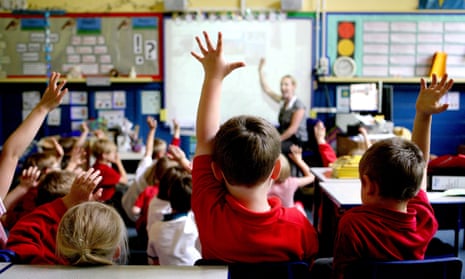A survey by the National Education Union (NEU) this week found nine out of 10 school staff believe poverty is having “a detrimental effect” on their pupils’ education. Teachers described it in harrowing detail. Children with no space to do homework in their overcrowded home, or falling asleep in lessons because they can’t get a good night’s sleep. Some pupils were missing out on school entirely: they couldn’t afford a PE kit or even a ruler, and were too ashamed to turn up without them. Many staff reported seeing children struggling to concentrate in class simply because they were hungry. “I try to teach my phonics group as I am giving others cereal to eat,” one teacher said.
Meanwhile, it has just been announced that primary and secondary schoolgirls in England and Wales are to receive free sanitary products in a bid to tackle period poverty. Like the children without a pencil case skipping class, research show that almost a third of female pupils have missed out on school or college during their period. Others are forced to try to learn with a sock stuffed in their underwear.
Discuss “life chances” in Britain and this is unlikely to come up: we’re told how you get on is a reflection of the hours you put in, or how special and smart you are. This myth of meritocracy has long been firmly rooted in Britain’s DNA, excusing a whole host of morally bankrupt occurrences, from the bloated wages of bosses while workers live on poverty wages to the fact a few elite private schools dominate an entire nation’s politics, media and judiciary. But the truth, of course, is that where we end up in life has always largely come down to luck – and something as simple as whether our parents could afford tampons or cereal.
A decade of austerity has brought this sharply into focus. Squeezed wages, shrinking services and social security cuts are leaving more and more families without a means to afford the basics for functioning minds and bodies. Half the school staff surveyed by the NEU felt that the situation of poverty inhibiting learning had worsened over the past three years, particularly in primary schools. No wonder. It has become the new normal for schools to be “an unofficial fourth emergency service” to try and plug the gap of growing deprivation. Staff now routinely report spending their own earnings on socks, tights and underwear for pupils. Food parcels given out by teachers are as standard now in some schools as physics class.
It is a lesson in how far cuts have spread that the same schools left to counter the effects of poverty on their pupils’ education are buckling under the weight of their own funding crisis. Just think of the pupil who starts the day hungry because her dad’s zero-hour contract didn’t pay out last week discovering that her school has to get rid of breakfast club because of budget shortfalls. The short-term effects of this are as obvious as they are brutal: what child can learn when they are hungry and tired? But it is the longer term impact that represents the greatest dereliction of duty.
Rising child poverty and a crumbling social fabric is not only robbing these young people of a decent childhood but of their futures too. Forget equal opportunity, an entire generation of low-income kids are being thrown on the scrapheap, left without the chance to build the skills to get through life; children who already had the odds rigged against them compared to their wealthier peers. Only the most backwards nation conducts itself in this manner, stifling the potential of millions of its population before they even get started.
If cost-cutting policies are at the heart of the struggle of low-income families, it is exacerbated by the belief that their disadvantage is paradoxically of their own making. Twenty years from now, the children who are falling asleep in class today because their mum has lost her in-work benefits will become the “feckless adults” blamed for their own hardship. It is far easier for a government to see certain people as “winners” and others as “losers”, “shirkers” and “workers”, to rank some kids as “gifted” and the rest as destined for a life on the breadline. As ministers watch an army of kids go to school hungry, that myth cannot salve their conscience.

